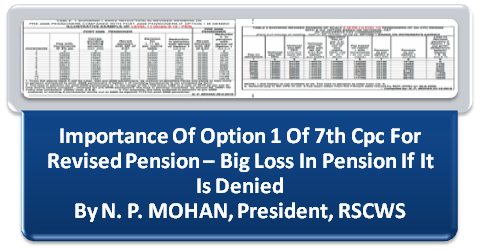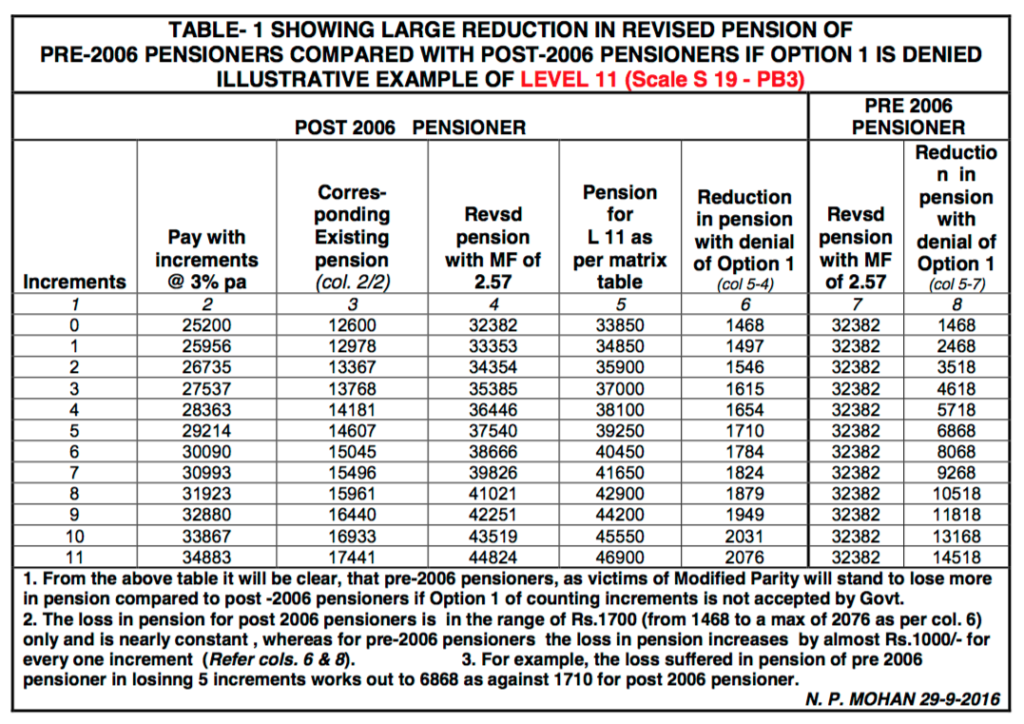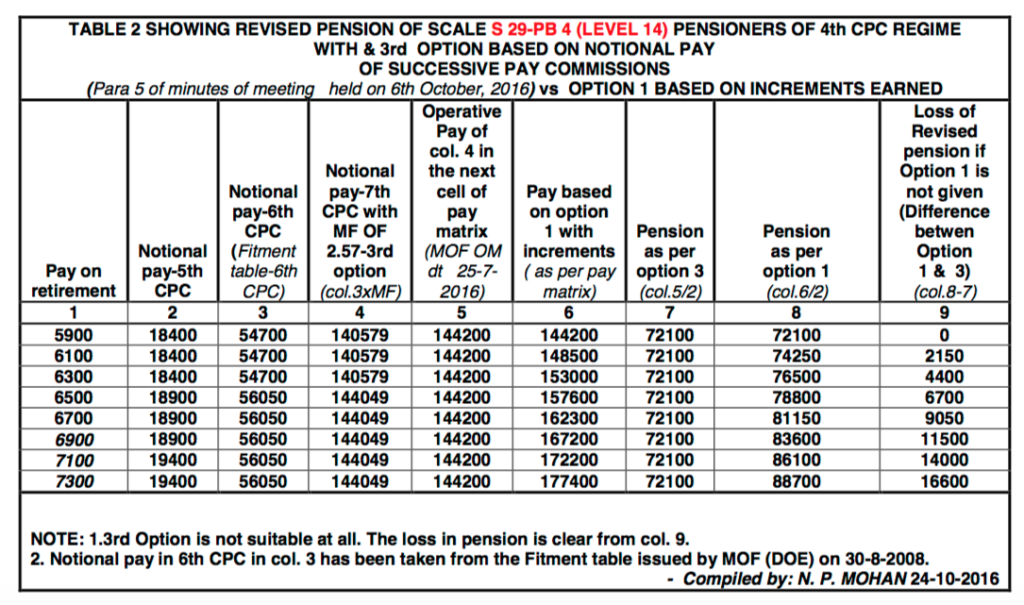Importance of Option 1 of 7th CPC For Revised Pension – Big loss in Pension if it is denied
By N. P. MOHAN, President, RSCWS
Most of the Pre 2016 pensioners will suffer heavy loss in Revised Pension, if the Option 1 recommended by the Seventh CPC is denied to them.
It was after 20 years that 7th CPC recommended parity between past pensioners and those retiring after 1-1-2016 under Option 1 which means consideration of increments earned while in service as detailed in Para 10.1.67 of the Report. This objective of PARITY (Recommended by Commission after examining all factors in depth in Chapter 10) is fulfilled only with the implementation of option 1 without any dilution/deviation. Non implementation of option 1 on the plea of non availability of record in a few cases will have the following adverse effects:
i) Pre 2006 pensioners, in particular, who are victim of modified parity will suffer a much bigger loss compared to the post 2006 retirees because in their case the basic pension which is multiplied by 2.57 in the interim phase takes into accounts their increments before retirement. This aspect has been examined in the case of Pre & Post S 19 pensioner as an example. From the Table 1 given below, it will be clear that the reduction in pension for post 2006 pensioner is of a uniform small magnitude as compared to the loss increasing exponentially with each increment lost in case of pre 2006 pensioner. Similar is the case in other scales also
ii) 7th CPC has considered pre 2016 pensioners as one homogenous group (Para 10.1.53 refers). It means that all pre 2016 pensioners have to be treated alike. But with denial of option 1, pre 2016 pensioners will get divided into two groups i.e. Pre 2006 and Post 2006 Pensioners – which violates the settled law of equality between the equals.
iii) In many cases, Option 3 gives much lower pension compared to option 1 recommended by 7th CPC. This will be clear from Table 2 below. Where a comparison has been made between two options.
Source – http://rscws.com/pdfdocs/Importance-of-Option-1-of-7th-CPC-for-Revised-Pension.pdf



COMMENTS
The suggestion of Mr.Tarun Gupta appears reasonable as the Govt.is having records of 82% pensioners and for the rest of the pensioners with the available records with the pensioners their pension can be revised or apply reasonable flat rate increase.
We may impress upon them that the benifit may be given to the people whose records are available. In the case it is not, the pensioners may be asked. otherwise they may be given some flat benifit. But for reason that records r not available, 82% cannot be denied . When there is a pay cmmission some anomaly will always be there and has to be solved in course of time.further there is certain minimum time limit for which a service book has to be secured which I think is 45 years after retirement and I don't think anybody beyond this limit is living. When the people in regular service enjoy the whole benifits of the CPC , why it's thought to be a burden by the govt.It should not be a practice that those near to the who is who r only benifitted.
It is not understood the reason for the undue delay in the implementation of option 1. Is it to deny pensioners their legitimate demand. Will the Govt.put the aged pensioners in the dumping ground?